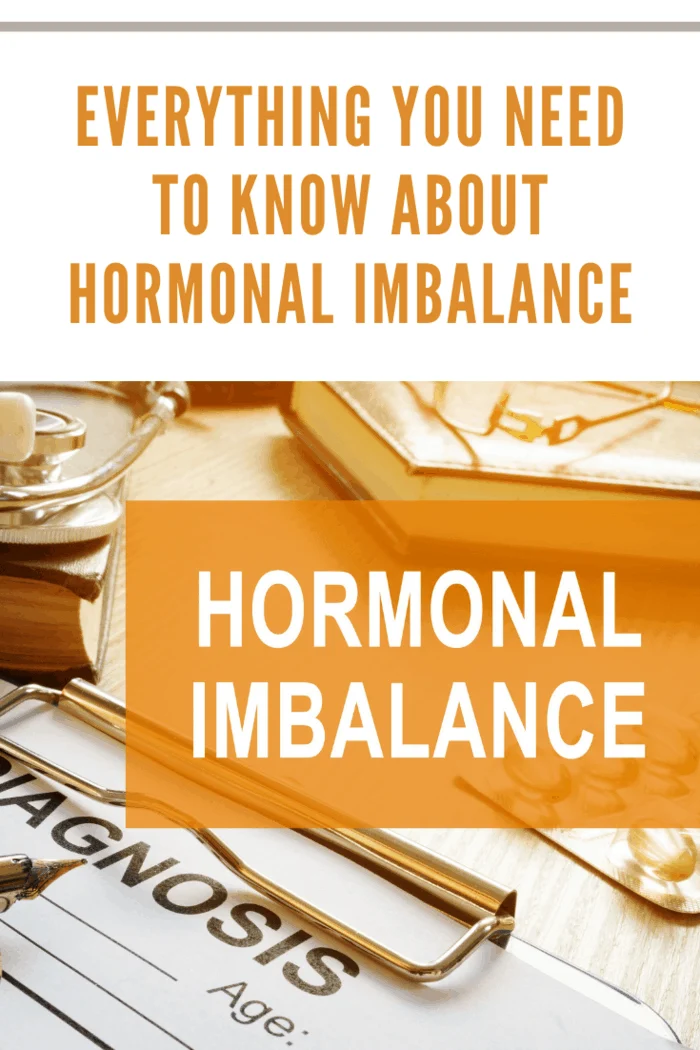Everyone has experienced hormonal imbalance at least once in their life. Nearly half of women have also experienced symptoms of hormonal imbalance. For men and women, essential hormones will fluctuate at some point in life and for various reasons, says Medical News Today.
One major reason for fluctuating hormones is age. According to Healthline, you may also experience hormone imbalance when your endocrine glands get the recipe wrong.
Hormone imbalance may be caused by:
- Poor diet
- Chronic stress
- Insomnia
- Genetic variations
- Exposure to toxins
- Pregnancy
- Menopause
- Medications

How to know if you have a hormonal imbalance
Hormone imbalance symptoms can be different between individuals and vary between sexes.
Symptoms of hormonal imbalance in women include:
- Irregular periods
- Acne
- Hair loss
- Pain during sex
- Vaginal dryness
- Hot flashes
- Sweating at night
- Unexplained weight gain
- Low sex drive
- Feeling depressed or anxious
- Fatigue
- Dry hair and skin
- Trouble concentrating
Symptoms of hormonal imbalance in men include:
- Development of breast tissue
- A decrease in beard growth and body hair growth
- Muscle loss
- Difficulty concentration
- Loss of bone mass
- Hot flashes
However, these symptoms do not necessarily mean you are experiencing hormone imbalance.
Only a doctor can determine if hormonal imbalance is behind your symptoms.
Dominique Fradin Read Vitalife MD will assess the situation and give a detailed report and a treatment plan to help balance your hormones if it is indeed the problem.
Importance of hormone balancing
Hormones control almost everything in the body. They are like messengers that pass on instructions between body organs.
They control how you feel, and manage behavior, reproduction, development, and everything else in the body.
For instance, a healthy hormone balance boosts brain function and prevents cognitive issues such as memory gaps, shortened attention spans, etc.
They also improve your cardiovascular, bone health, sex drive, skin, hair, sleep, and energy.
In addition, a healthy hormone balance keeps your OS in proper condition.
Since the hormones keep your body running smoothly, they enhance an overall body clean function by getting rid of harmful viruses and bacteria.
They are also responsible for a youthful appearance and the good feeling you often experience.
Ways to maintain hormone balance
The only way to know if you have a hormonal imbalance is to get diagnosed by a doctor.
Depending on your symptoms, your guru of hormone balancing may suggest one or more diagnostic tests such as a blood test, pelvic exam, ultrasound, or other additional tests such as thyroid scan, biopsy, and MRI, X-ray, or sperm count test.
Treatment options for a hormonal imbalance
Treatment for hormonal imbalance depends on what’s causing it.
Common treatment options may include:
- Hormonal therapy such as estrogenic, testosterone, and thyroid hormone therapy
- Anti-androgen medications
- Hormonal birth control
- Natural ways to balance hormones
You can also balance your hormones naturally by:
- Eating a proper diet
- Taking hormone balance supplements for women
- Exercising regularly
- Avoiding sugar and refined carbs
- Managing stress
- Consuming healthy fats
- Eating fatty fish
- Getting adequate sleep
Dr. Myles Spar, National Medical Director of Vault Health, recently gave some juicy insight about how the different aspects of hormones compare and contrast.
Dr. Myles Spar’s top-level insights:
- Men and women need the right testosterone-estrogen balance for optimal performance.
While testosterone is primarily thought of as the masculine hormone and estrogen is widely considered the female hormone, men’s and women’s bodies need both to function properly. Ensuring you have the right balance according to your gender or the gender you want to express is essential to proper sexual functions and performance.
- Cardiovascular disease is the #1 killer of both males and females; though proportionally, it affects men’s health more.
Cardiovascular disease proportionately affects men’s health more. Compared to their female counterparts, Males are more likely to smoke and be obese and less likely to exercise or eat healthy. Cardiovascular disease in men can disrupt testosterone production, and low testosterone also increases the risk of heart disease.
- Hormonal fluxes are more common and frequent for females than males.
When it comes to hormonal fluxes, this might be where men and women differ the most. Women go through hormonal fluctuations their whole lives post-puberty; because of this, they are more prone to thyroid dysfunction and various auto-immune diseases. Men’s hormones fluctuate as they age. Their testosterone levels drop 1% each year after age 35, and 40% of men at age 40-plus have low testosterone.Hormonal fluctuations are normal and natural, but the minute it affects your sexual health is when you should visit the doctor.
- Mental illness symptoms differ between men and women.
Statistics show that women suffer from depression at higher rates than men, but we’re not collecting the right information. Many healthcare practitioners don’t know how to assess anxiety and depression in men. The pandemic has shifted the paradigm of men keeping quiet about their mental health issues. Mental illness symptoms differ between men and women. For example, men tend to have physical symptoms of depression, like back pain, whereas women’s emotions tend to heighten with depression.
There are so many factors that can affect both male and female hormone levels. Still, it’s important to remember that managing your stress levels, getting enough sleep, and staying active are key factors to maintaining a healthy lifestyle and healthy hormones.
Do you think you may suffer from a hormone imbalance? For more information about men’s health and wellness tips, facts, visit www.vaulthealth.com.
Final thoughts
Your hormones are involved in every aspect of your health, and you need them in specific amounts for your body to function properly.
Hormonal imbalances alter body functions and can lead to severe complications.
Fortunately, you can take steps to maintain a healthy hormone balance.
